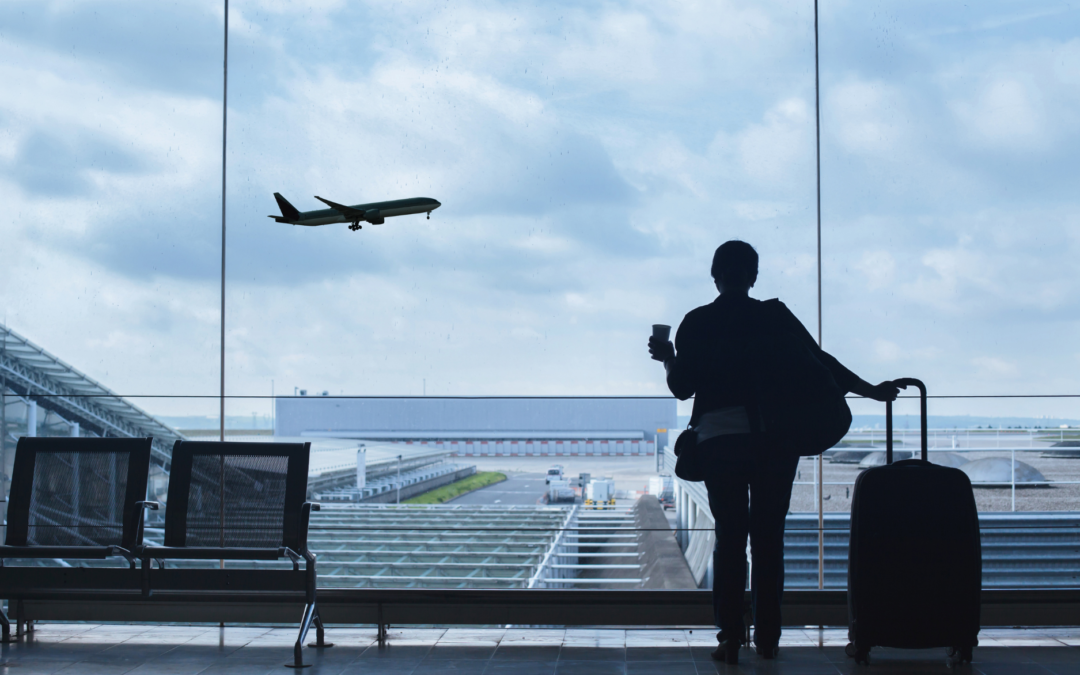As 2025 approaches, the travel landscape is shaping up with new trends that cater to travelers’ evolving priorities, from immersive experiences and sustainable tourism to tech-driven convenience and personalized itineraries. Let’s explore the top 2025 travel trends expected to redefine travel in 2025, making trips not only more enriching but also more thoughtful and memorable. https://www.thebesttripdeals.com
1. Slow Travel & Local Immersion
The concept of “slow travel” has been on the rise for a few years, but it’s expected to gain even more traction by 2025. Travelers increasingly want to spend extended time in one place, immersing themselves in the local culture, cuisine, and daily life rather than hopping from one destination to another. This shift towards quality over quantity is driven by a desire for deeper cultural connections and more sustainable travel practices.
Platforms like Airbnb are already catering to this trend with “Experiences,” which allow travelers to participate in local workshops, guided tours by locals, and cultural exchanges. In 2025, we’ll likely see more travel companies and destinations offering extended-stay packages that encourage travelers to slow down, explore neighborhoods, and even work remotely while abroad. This trend speaks to a growing desire for authenticity, where travelers seek genuine connections rather than just ticking off popular sights.

2. Eco-Conscious Travel Choices
With the impact of climate change becoming more evident, travelers are increasingly prioritizing eco-friendly choices. By 2025, sustainable tourism will be a defining factor, with eco-conscious travelers seeking out options that reduce their carbon footprint and contribute positively to the local environment and communities.
Expect to see a rise in eco-lodges, carbon-offsetting travel options, and zero-waste hotels. Airlines and hotels are also likely to expand their carbon offset programs, and destinations may implement “green taxes” to fund conservation efforts. For instance, countries like Costa Rica are already leading the way with sustainable tourism practices, preserving their natural resources while attracting eco-minded visitors. In 2025, green travel will be less of an add-on and more of a core feature for many travel brands.
3. Travel Powered by AI and Automation

Artificial intelligence (AI) and automation are transforming the travel industry, from personalized booking systems to AI-powered chatbots. By 2025, we can expect even more sophisticated AI applications that streamline the travel experience, from planning to post-trip feedback.
Imagine AI assistants that know your preferences and budget, curating travel itineraries specifically tailored to your tastes. In addition, automated systems at airports, such as biometric check-ins and digital boarding passes, will speed up processes, making travel smoother. Companies like Amadeus and IBM are already developing AI-driven solutions to improve customer service, personalize experiences, and optimize booking systems. For travelers, this means easier planning, fewer hassles, and more time enjoying the destination.
4. Wellness Travel Goes Mainstream
Wellness travel has been around for some time, but by 2025, it will no longer be just a niche market. Travelers are increasingly prioritizing their mental and physical well-being, making wellness a key component of travel experiences. Destinations are responding with offerings that focus on relaxation, rejuvenation, and holistic wellness, such as yoga retreats, meditation workshops, and digital detoxes.
In addition to traditional wellness retreats, 2025 will likely see the rise of “mindful travel,” where experiences are designed to help travelers connect more deeply with themselves and their surroundings. Destinations like Bali, Thailand, and Costa Rica are already popular for wellness tourism, but we can expect even more locales to incorporate wellness into their offerings, from luxurious spa resorts to eco-conscious mountain retreats.
5. Rise of the “Workcation” and Hybrid Travel

With remote work now a permanent fixture for many, the “workcation” trend—where people work remotely from vacation destinations—is set to continue its upward trajectory. By 2025, workcation will be more sophisticated, with destinations and hotels offering high-speed internet, dedicated workspaces, and “business leisure” packages tailored for remote professionals.
Hybrid travel, where work trips blend seamlessly into leisure travel, will also become more common. Employers are increasingly recognizing the benefits of allowing employees to extend business trips for personal time, a win-win that combines productivity with the personal benefits of travel. This trend not only reshapes the typical work environment but also transforms the way people experience travel, allowing them to stay in destinations longer and explore more.
6. Experiential and Niche Travel
Travelers in 2025 are expected to seek unique, hands-on experiences that go beyond traditional sightseeing. From cooking classes with local chefs to wildlife conservation efforts, “experiential travel” will be the cornerstone of unforgettable trips. This trend includes niche travel, where trips are centered around specific interests or themes, such as culinary tourism, photography tours, or history and archeology trips.
Tour operators are already responding to this demand by offering customized, immersive experiences. Companies like Intrepid Travel and G Adventures have built their brands around experiential travel, and we can expect this sector to grow as travelers prioritize meaningful experiences. In addition, these niche-focused tours often support local communities and offer travelers unique insights into their destinations.
7. Remote Destinations and Lesser-Known Spots
In a quest to escape the crowds, travelers are increasingly exploring remote and lesser-known destinations. By 2025, this trend will become even more prominent, as people seek solitude, untouched landscapes, and authentic experiences away from the typical tourist routes.
The rise of social media has uncovered hidden gems worldwide, and destinations once considered “off the beaten path” are now gaining popularity. With infrastructure improvements and easier access to remote areas, places like Greenland, Mongolia, and rural Japan are becoming attractive options for travelers looking for adventure and exclusivity.
8. Personalization and Customization of Travel Experiences

With advancements in AI and data analytics, travel companies are getting better at personalizing travel experiences based on individual preferences. By 2025, travelers will expect personalized recommendations that align with their interests, dietary needs, fitness levels, and travel styles. Whether it’s choosing a room with a specific view or selecting meals that cater to specific dietary requirements, travelers will have more control over their itineraries.
Services like Netflix-styled travel suggestions, custom itineraries, and targeted experiences will make trips feel more curated. For instance, travel brands may use machine learning to recommend destinations or activities based on previous preferences, providing a more seamless and enjoyable experience for customers.
9. Focus on Safety and Hygiene

Although the pandemic may be in the past, health and safety concerns continue to be a priority for travelers. By 2025, safety protocols and cleanliness standards will remain integral, with travelers opting for destinations and providers that maintain stringent health measures.
Safety assurance will be embedded into every part of the travel experience, from digital health passes at airports to contactless check-ins at hotels. Travel insurance is also evolving to cover not only traditional medical emergencies but also specific pandemic-related disruptions, providing peace of mind for travelers.
10. Technology-Enhanced Travel Experiences
Finally, the integration of technology into the travel experience itself is set to reach new levels. Virtual reality (VR) and augmented reality (AR) experiences will allow travelers to explore sites virtually before visiting. Hotels might offer “smart rooms” where guests can control lighting, temperature, and entertainment systems through a single app.
Moreover, the metaverse—an interconnected, digital universe—could redefine travel planning, enabling travelers to “try out” destinations or preview tours in a virtual setting. By 2025, technology will not only make travel more convenient but also create new possibilities for exploration and connection.
Final Thoughts
As we head into 2025, the travel industry is transforming in exciting and meaningful ways. These trends reflect a shift towards more personalized, sustainable, and enriching travel experiences. For travelers, the future holds a promise of adventure that’s not only enjoyable but also aligned with their values and preferences. Whether it’s slowing down to savor a new culture or relying on advanced tech for a seamless journey, the year 2025 is set to redefine what it means to explore the world.


Grab the Best Flight Deals Now
Grab the Best Car Rental Deals Now
Grab the Best Bus Ticket Deals Now
Grab the Best Airport Transfer Deals Now
Grab the Best Adventure Tour Deals Now
Grab the Best Train Ticket Deals Now
Grab the Best Cruise Ticket Deals Now
Explore AP Today for the Best Discounts & Promotions across Asia!
Explore ES Today for the Best Discounts & Promotions across Europe!

